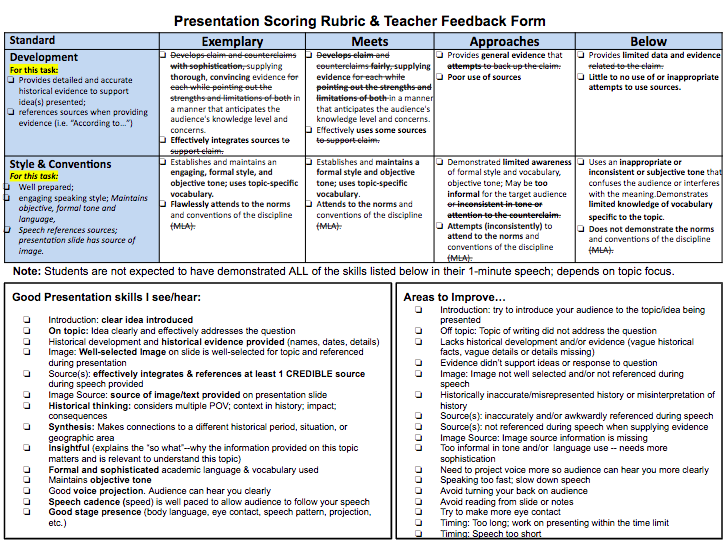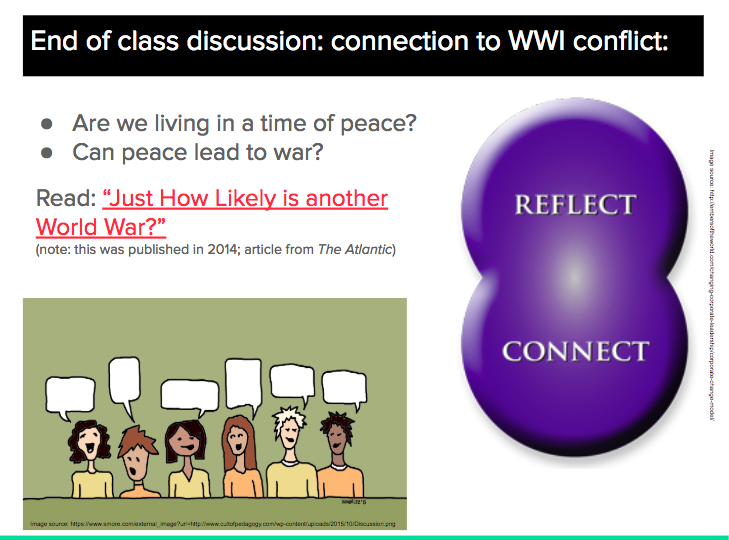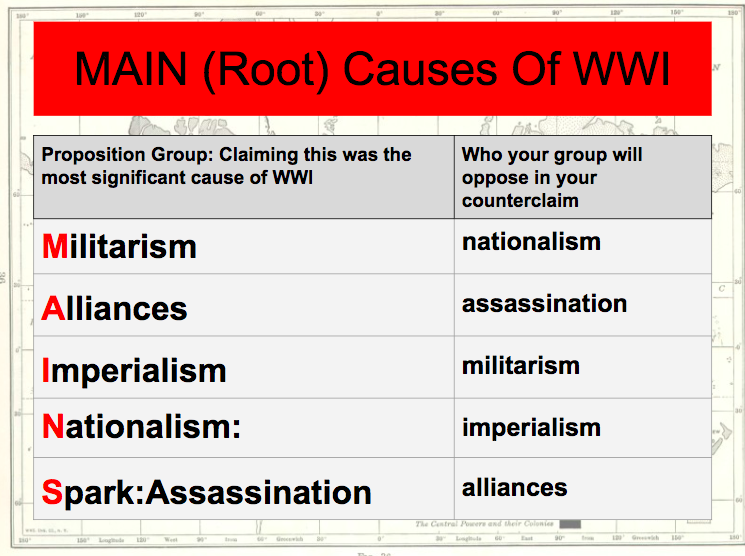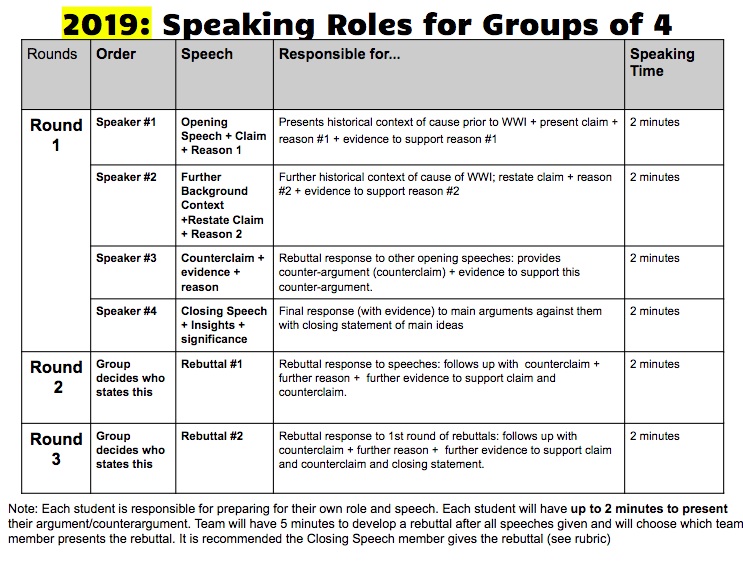|
Today you and your group will present your 1 minute/1-slide presentations to your peers. While you are presenting, the audience will be watching and providing constructive feedback to help you identify your strengths and weaknesses with public speaking and in presenting historical information while using supporting evidence in a speech. This is a chance to practice the skills needed in "constructing arguments" and also in your ability to capture and hold an audience attention through voice projection, tone, speech cadence, eye contact, visuals, etc. Link you will need for class today: Formative Presentation - Peer Feedback Form - Google Survey - you will submit a new google form for each group presenting Read:
HW: Read the feedback on your presentation & Reflect...There is an assignment posted within SeeSaw that tasks you to look at the constructive feedback from your peers today during your 1-minute presentation. Please take the time to look at your feedback and write a brief response to the feedback your received.
Today you will work within your group to respond to one of the assigned DBQ questions. You will prepare your group's response in presentation format and Helpful Links for Today's Class:
Group tasks:
HW: Prepare a 1-minute speech + slideBe sure when you arrive to the next scheduled class you are ready to present.
Presentation Tips: If you look at the rubric you will see that it is important that your presentation topic addresses the question in some part and that you provide evidence to support your idea(s) and reference your source(s). You should also be sure the image you select for your slide is relevant to the ideas you discuss. Your image can be used as a piece of evidence.
Speech Tips: You are allowed to have notes (note card, sheet of paper) with you when you present. Try to avoid reading from your notes the whole time or reading from your slide (your audience is capable of reading the text on your slide).
Today we will take a look at how WWI ended.You will work within a new group to try to understand how WWI reshaped Europe socially, politically and economically. You will investigate the steps taken by nations after the war to establish a process for resolving issues among European nations diplomatically to avoid future conflicts. And whether these actions were successful or failures in trying to maintain peace. ...We are starting an informal group investigation into how WWI is linked to WWII... Helpful Resources for Today's Class:
Today, you will work collaboratively and individually to reflect on the strength and weakness of some of the arguments (and rebuttals) presented last class during the formative debates. Please discuss, watch videos and then individually reflect on compelling arguments heard and what evidence (and analysis) was presented that may have led you to reconsider your view on the significance of the causes of WWI. There is a Summative Reflection Document in your WH Drop folder for this. Link to Folder of Formative Debate WWI Videos HW: Finish your reflection (if necessary)The order at which teams will present their argument in the debate will be randomly selected. HW: Read an article...HW: Pick and read ONE of the following articles:
We will use these for a discussion at the start of next class before we begin taking a look at how WWI ended and the turn of events that led to a failed peace plan. These articles, while they are editorial opinion pieces marking the 100-year anniversary of the start of WWI, they have some rather provocative ideas and makes predictions and warnings about turbulent times we see in the world today to remind us that the lessons of WWI are still relevant to our lives today. Do you agree or disagree with these articles' views? |
Mrs. Stewart's CourseYou'll find a daily agenda posted here for each day that class meets Archives
May 2020
Categories |






 RSS Feed
RSS Feed